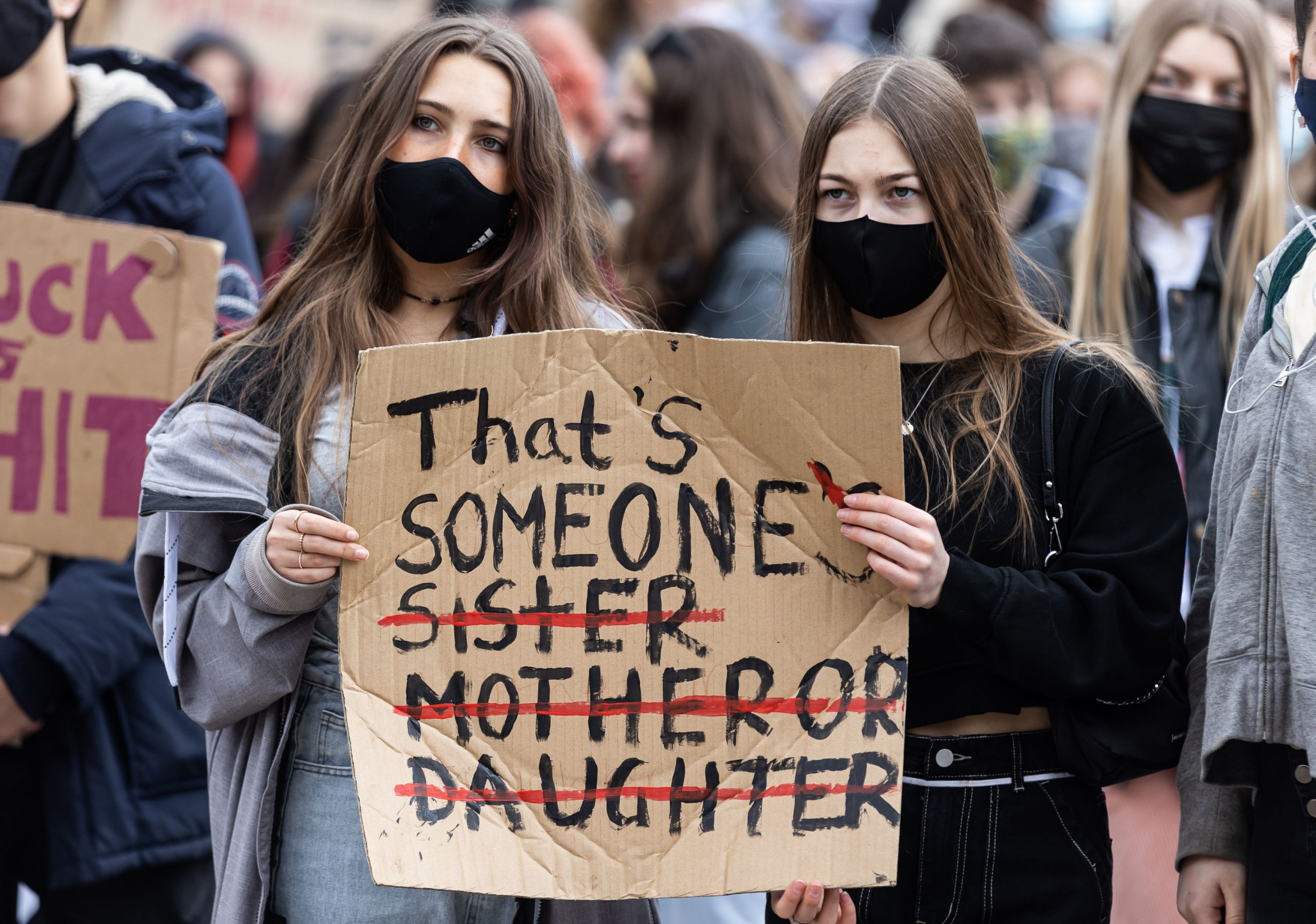Again and again, we see painful stories and experiences in the media from women of a time when a man acted violently towards them physically or verbally.
With the recent death of Sarah Everard, who was murdered by ex-Metropolitan Police officer Wayne Couzens sending shockwaves through society, people are on high alert to protect themselves when out alone.
Women feel as though they cannot walk home alone when it is dark, often carrying keys between their fingers or fake-calling a friend just to feel a sense of protection.
But the time of day is not the problem here. Even in broad daylight sexual harassment occurs, I know as I have experienced it numerous times, as have many other women, so why does the responsibility fall on women to change their behaviour?
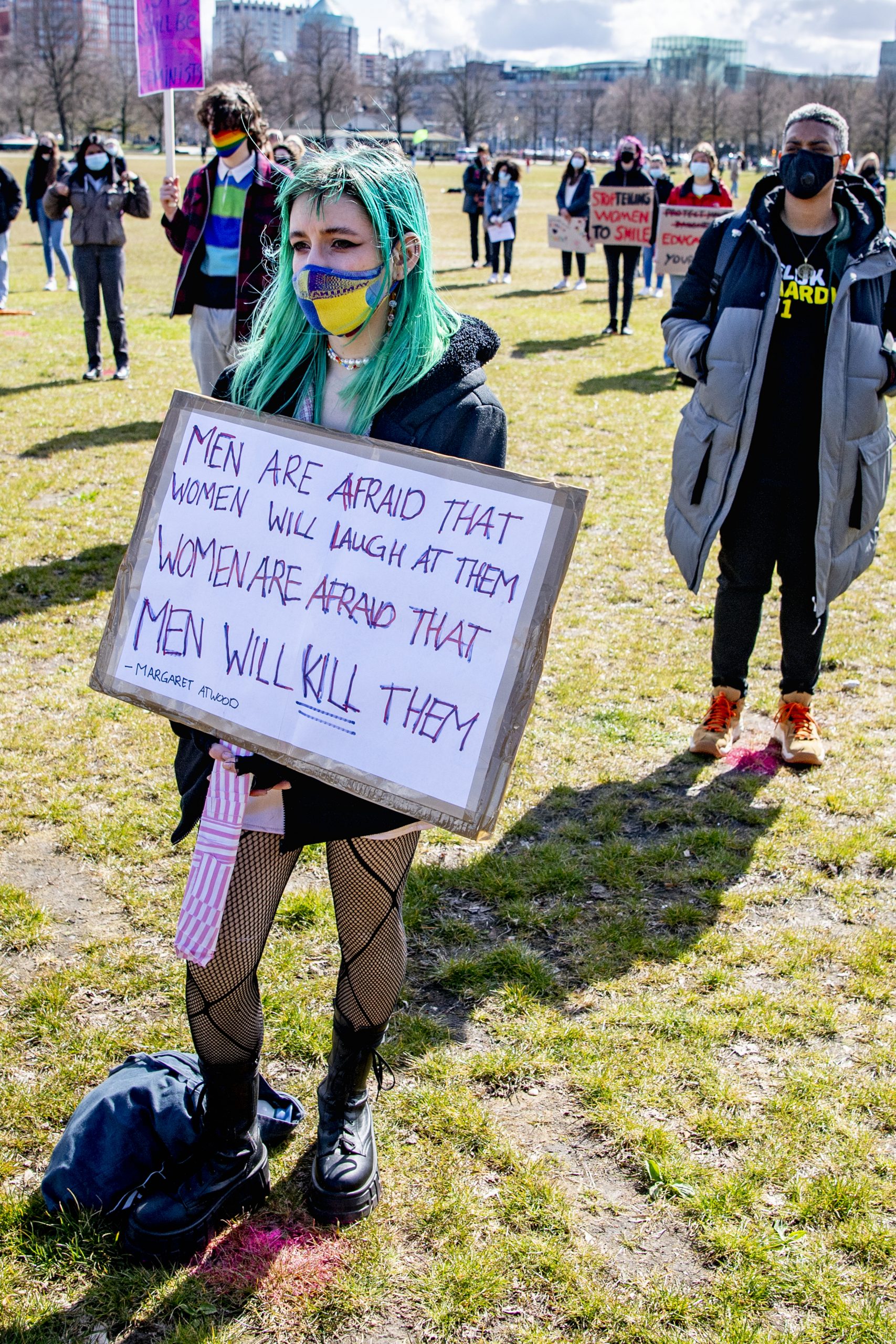
Credit: Robin Utrecht/Shutterstock 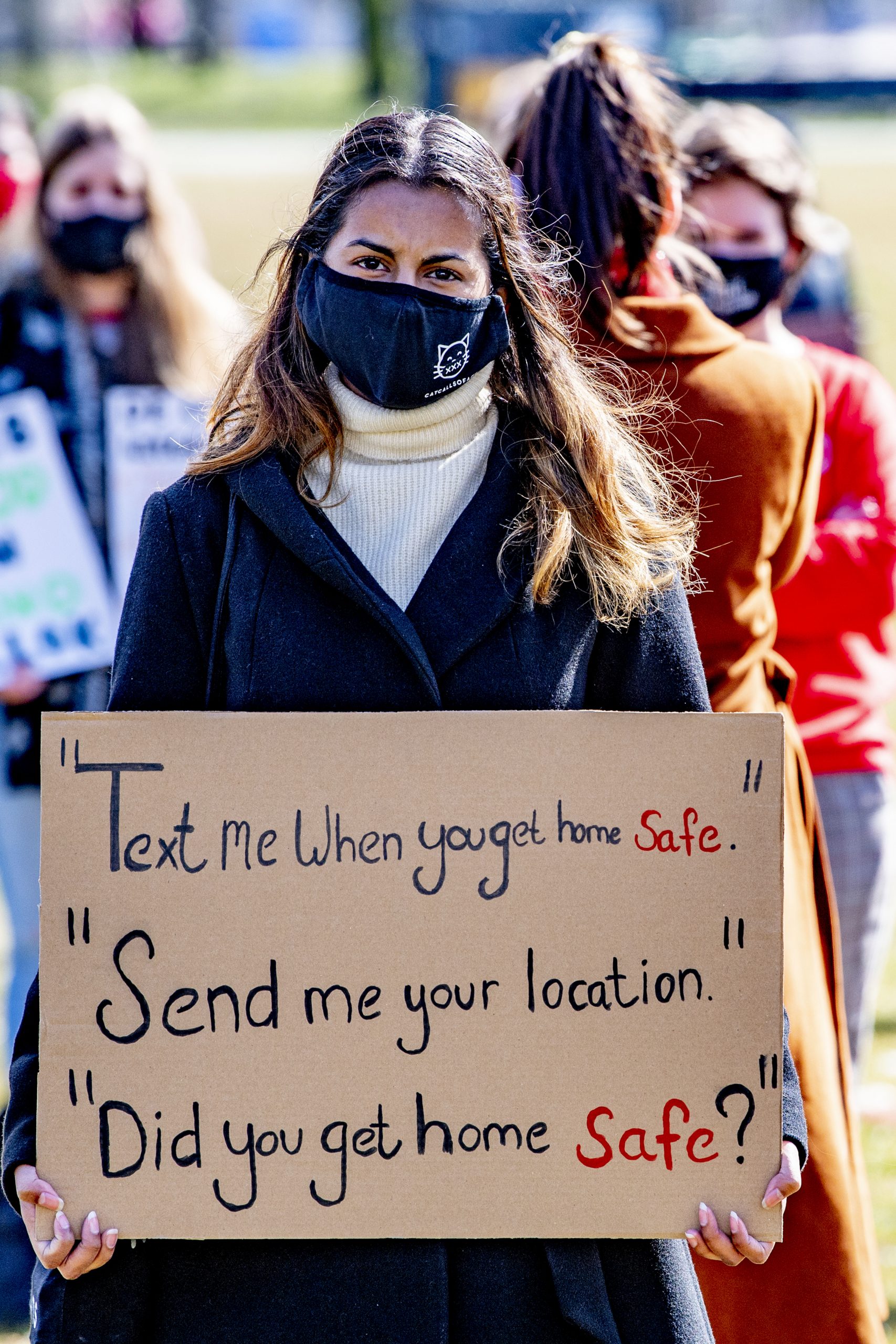
Credit: Robin Utrecht/Shutterstock 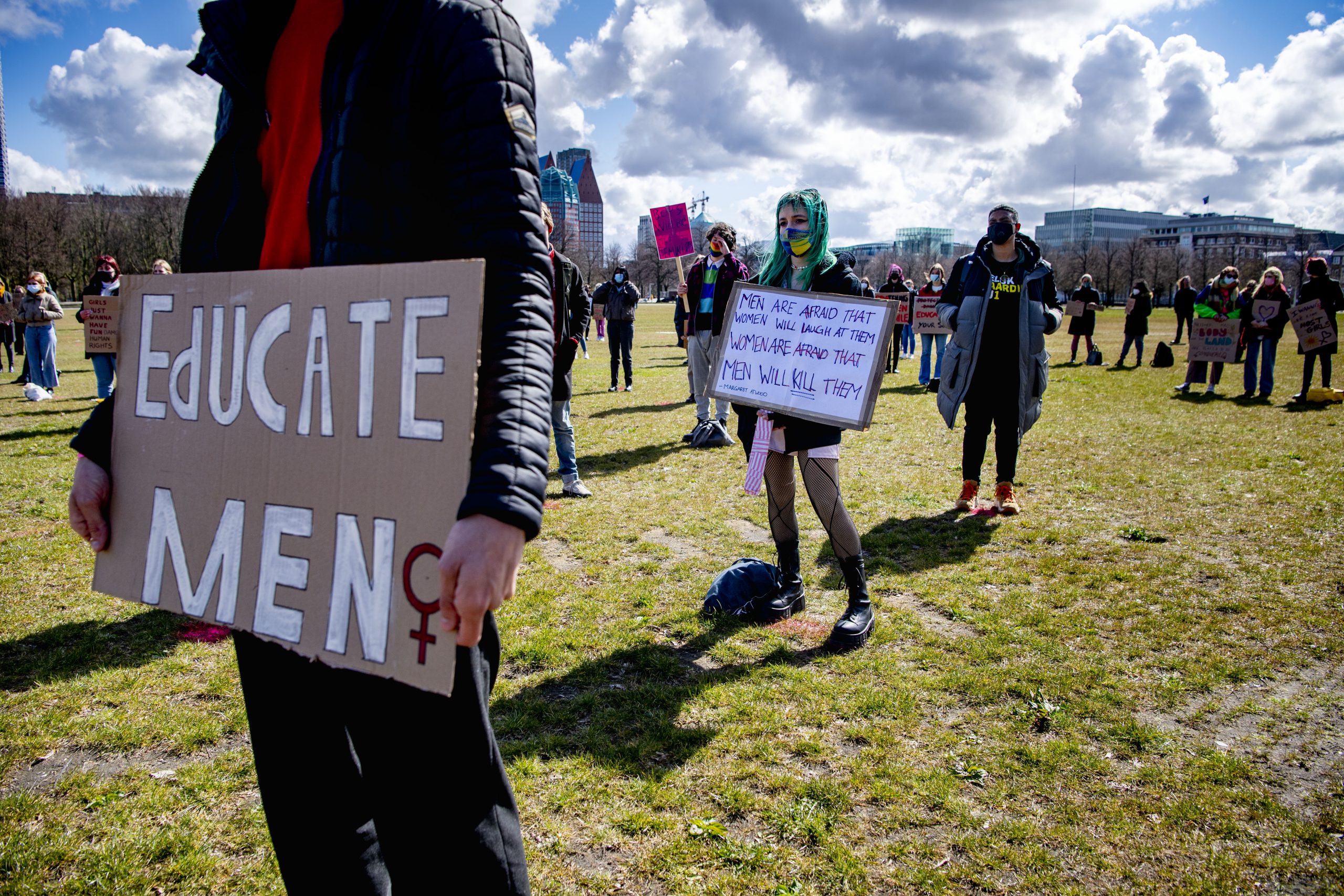
Credit: Robin Utrecht/Shutterstock 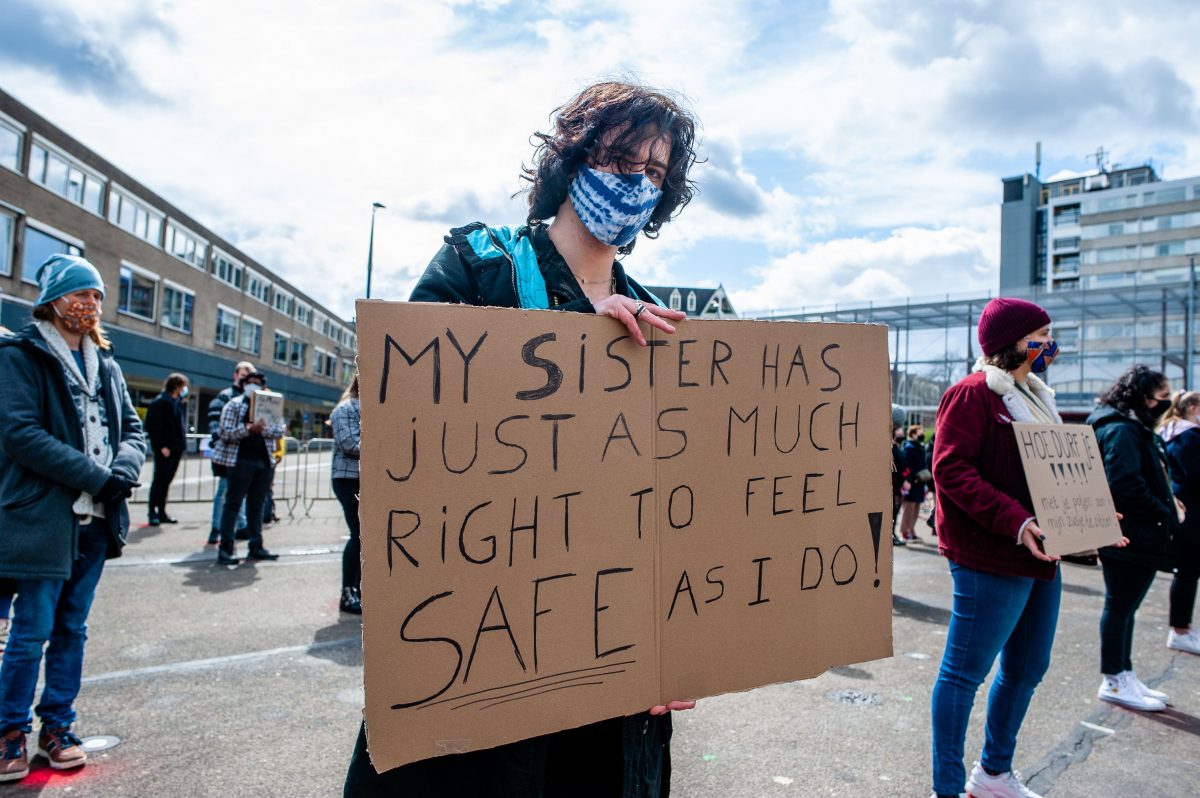
Credit: Romy Arroyo Fernandez/NurPhoto/Shutterstock 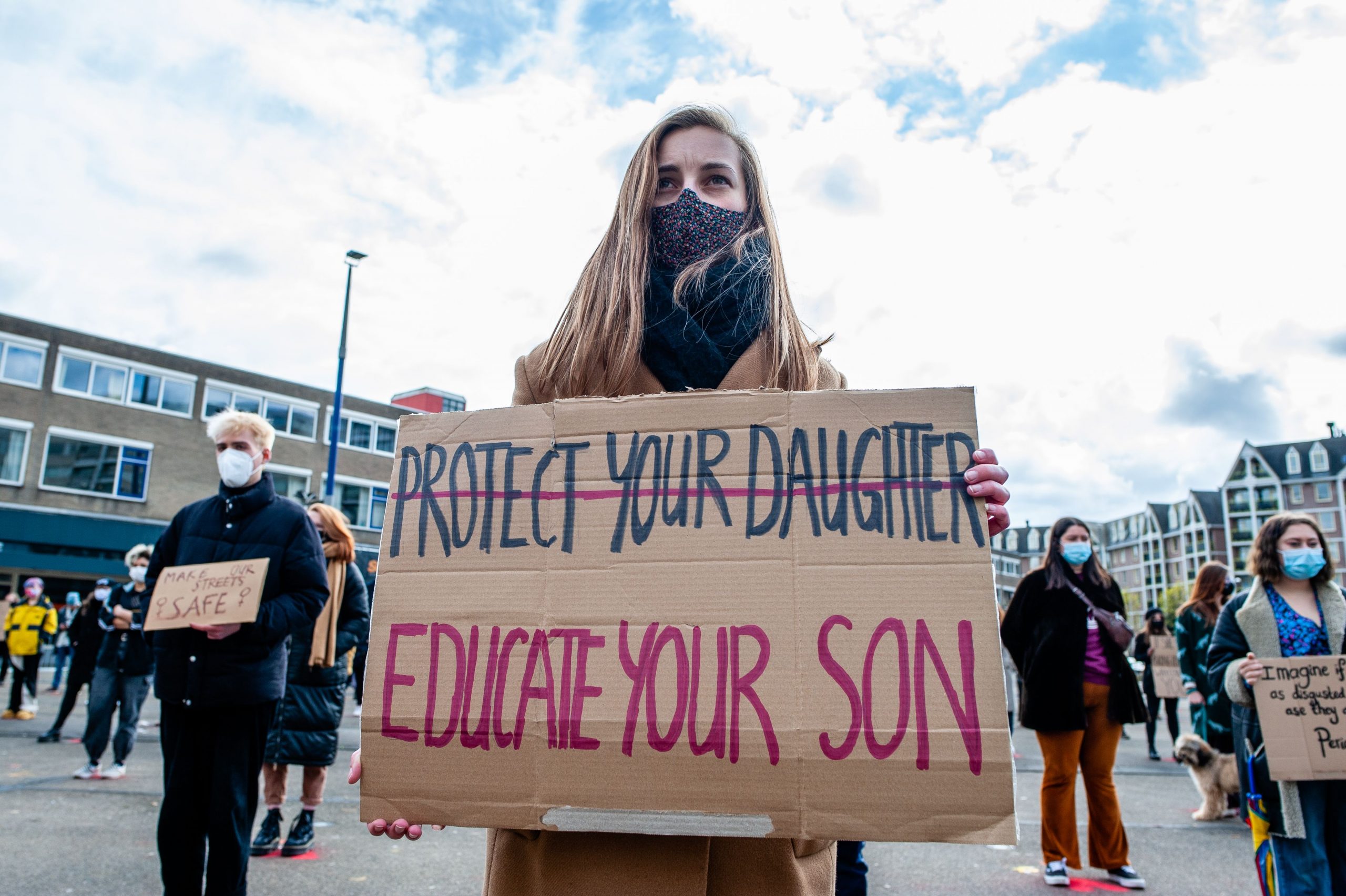
Credit: Romy Arroyo Fernandez/NurPhoto/Shutterstock 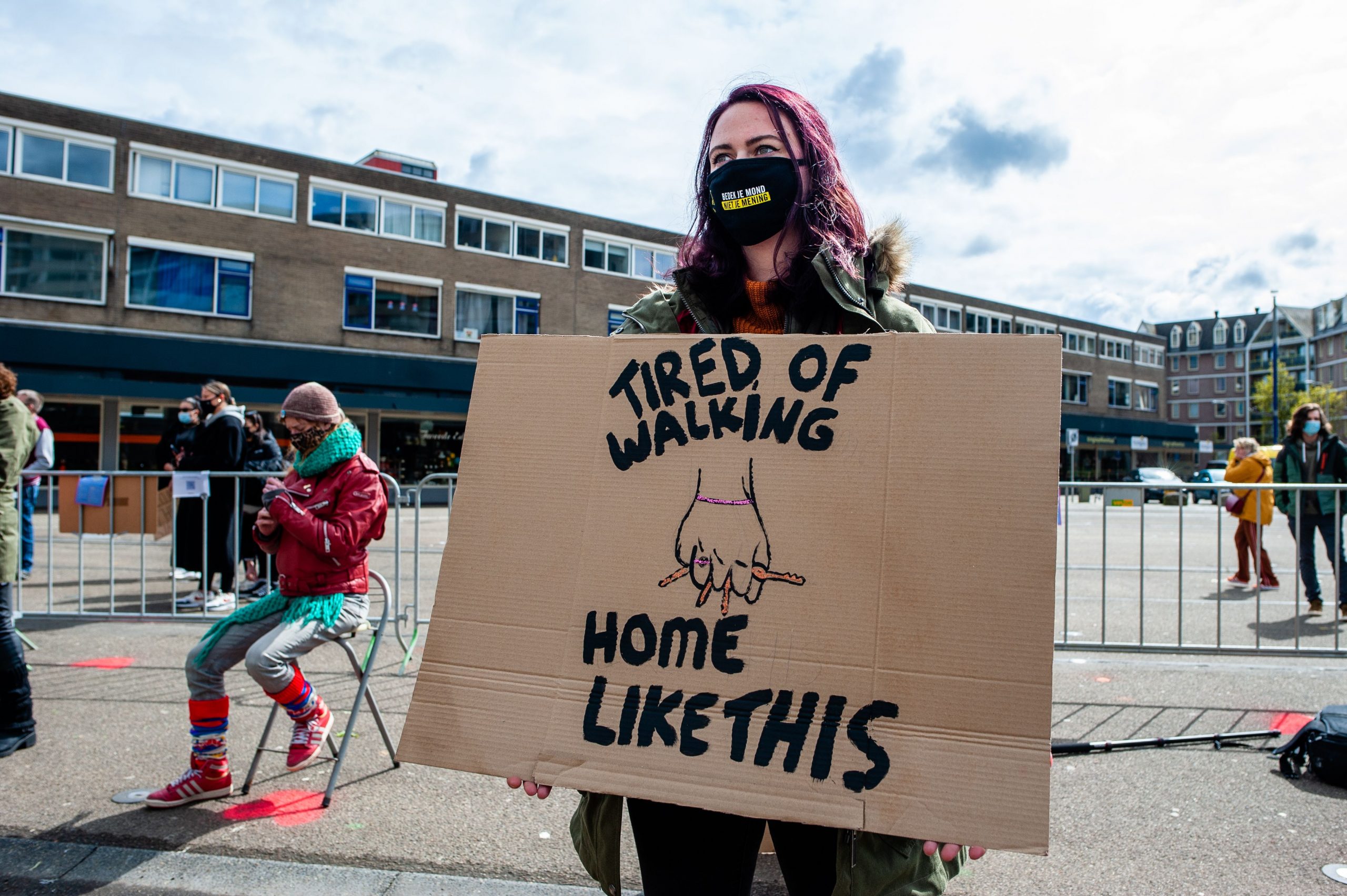
Credit: Ana Fernandez/SOPA Images/Shutterstock 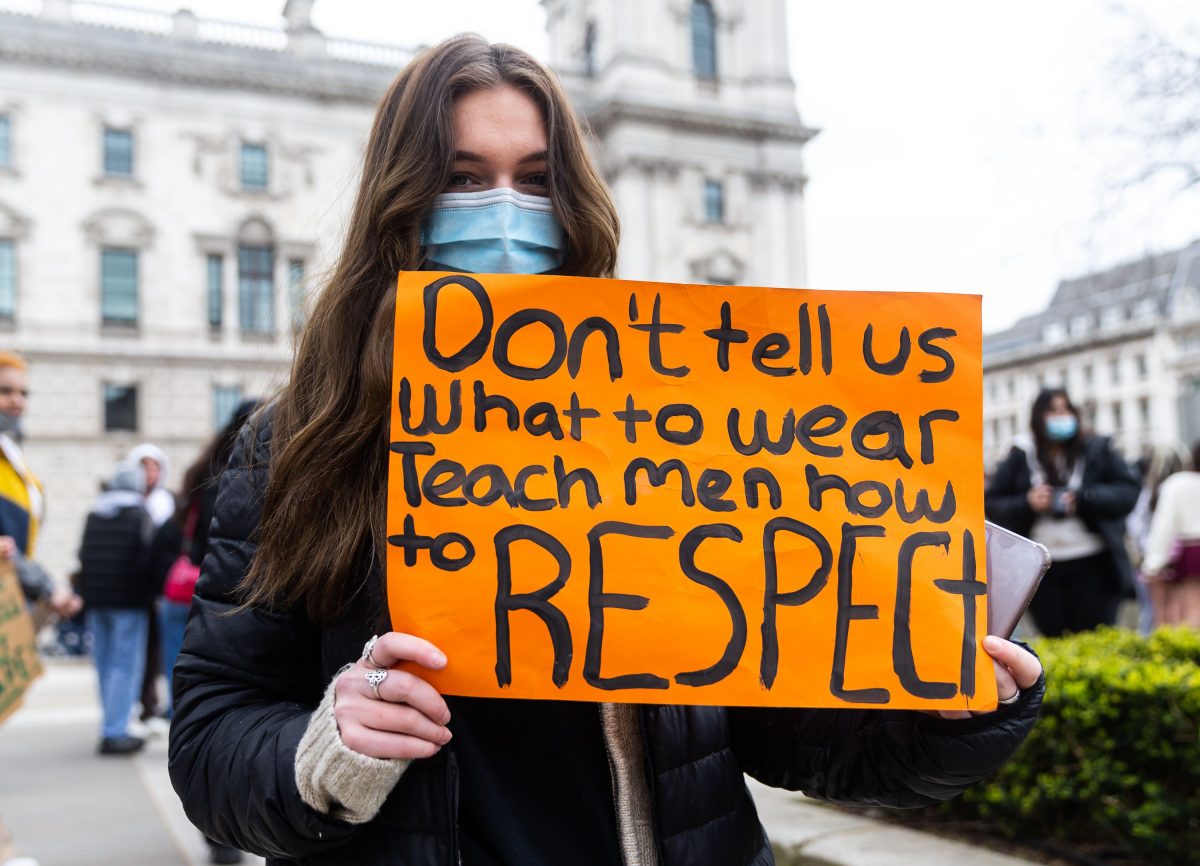
Credit: MI News/NurPhoto/Shutterstock 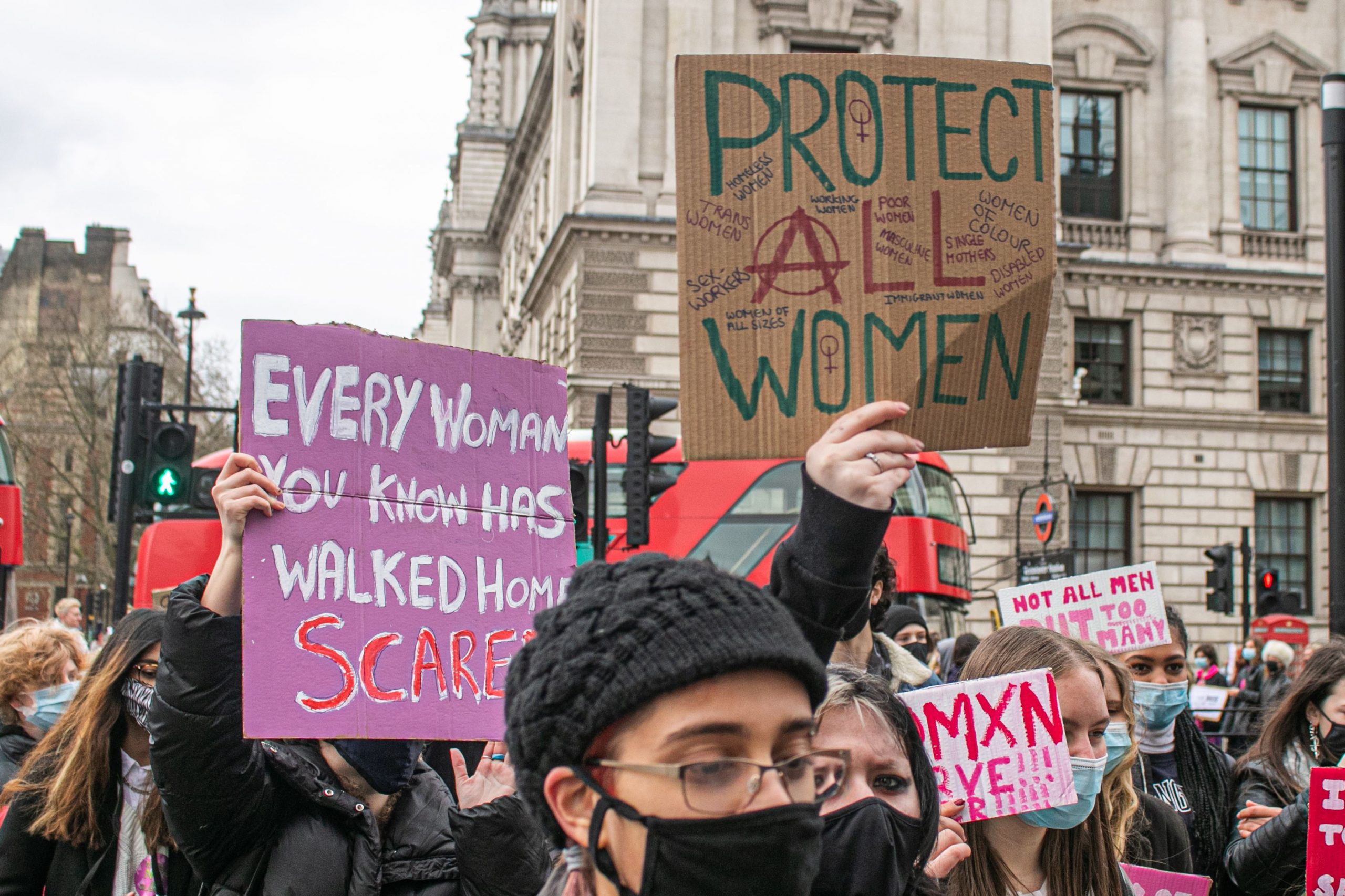
Credit: Amer Ghazzal/Shutterstock
“Two out of three women aged 16 to 34 years experienced one form of harassment in the previous 12 months; with 44% of women aged 16 to 34 years having experienced catcalls, whistles, unwanted sexual comments or jokes, and 29% having felt like they were being followed.’
Revealed by the 2021 survey, ‘Perceptions of safety and experiences of harassment, by personal characteristics, based on the Opinions and Lifestyle Survey (OPN)’
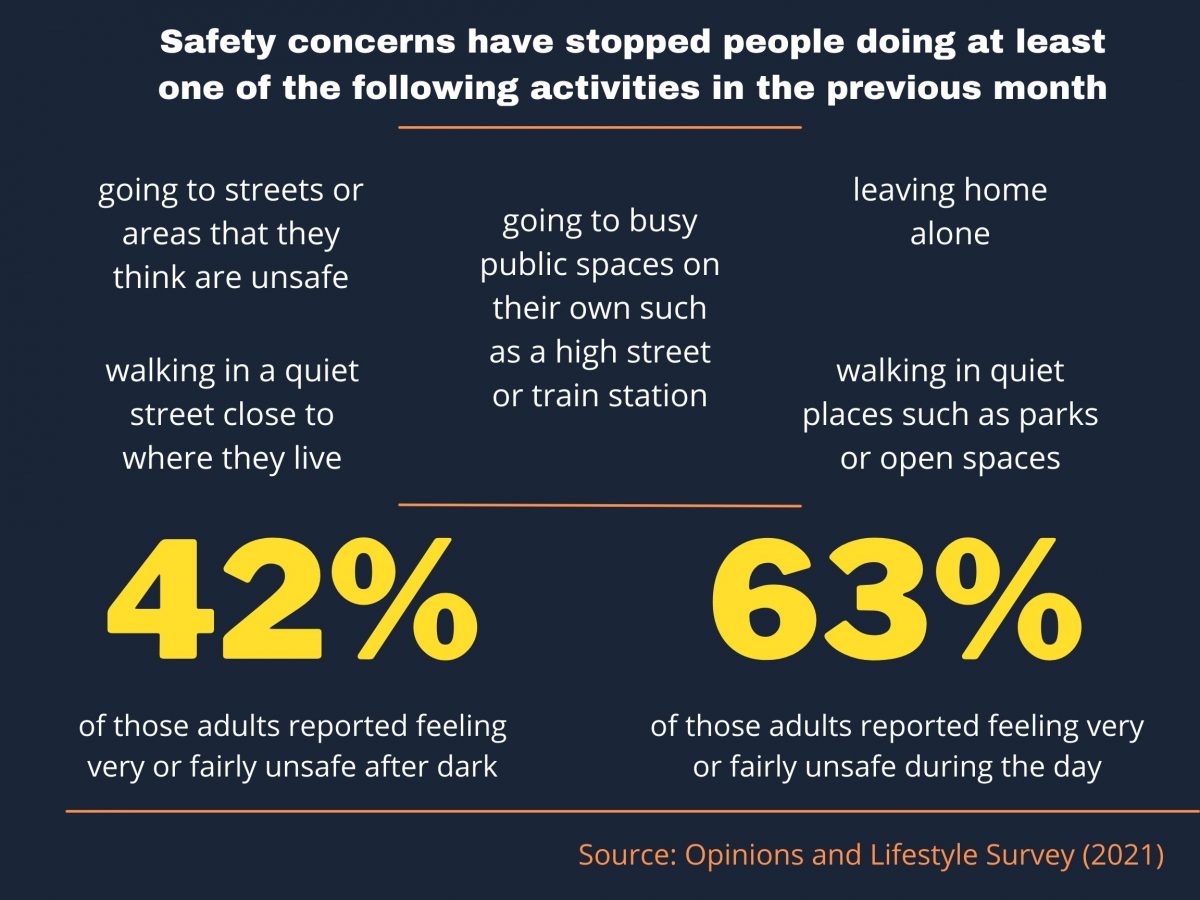
Male violence towards women is something that occurs all too often, and fundamental change is needed to stop it.
One company that is trying to push for change and help women feel safer is offering a free, not-for-profit app, Path Community. The purpose of the app is to provide anyone walking home at night a monitored route on their phone.
The app is currently being trialled in London by about 500 people, including Metropolitan Police officers in Southwark and Lambeth.
The monitored route, created by the app, will take the user on lit streets and those that are not known for being unsafe.
On this route, if the user strays more than 40 metres away or stops for over three minutes, the app will prompt them to say if they’re okay. If they do not, the user’s chosen ‘guardians’, such as family or friends, are notified.
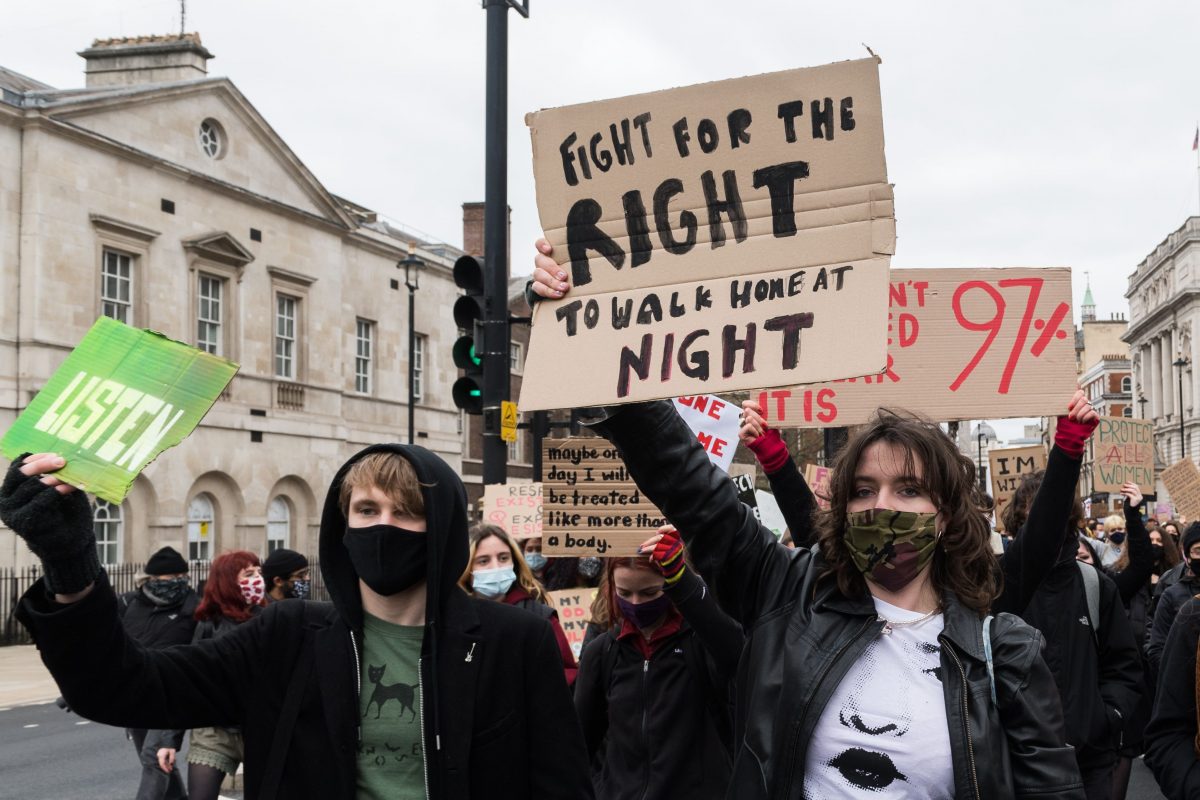
The Home Office minister, Rachel Maclean has backed the app as and says schemes such as this should be part of a wider plan to make streets safer.
However, this has received backlash from women’s safety groups.
Speaking to Stylist, CEO of Rape Crisis England and Wales Jayne Butler, said: “Spaces are not unsafe because of the streetlights or the environment or what we are wearing – they are unsafe because of violent men.
“There are obvious concerns around the safety of the data this app is collecting and the danger of this being misused by abusers, but mostly this is an example of a sticking plaster.”
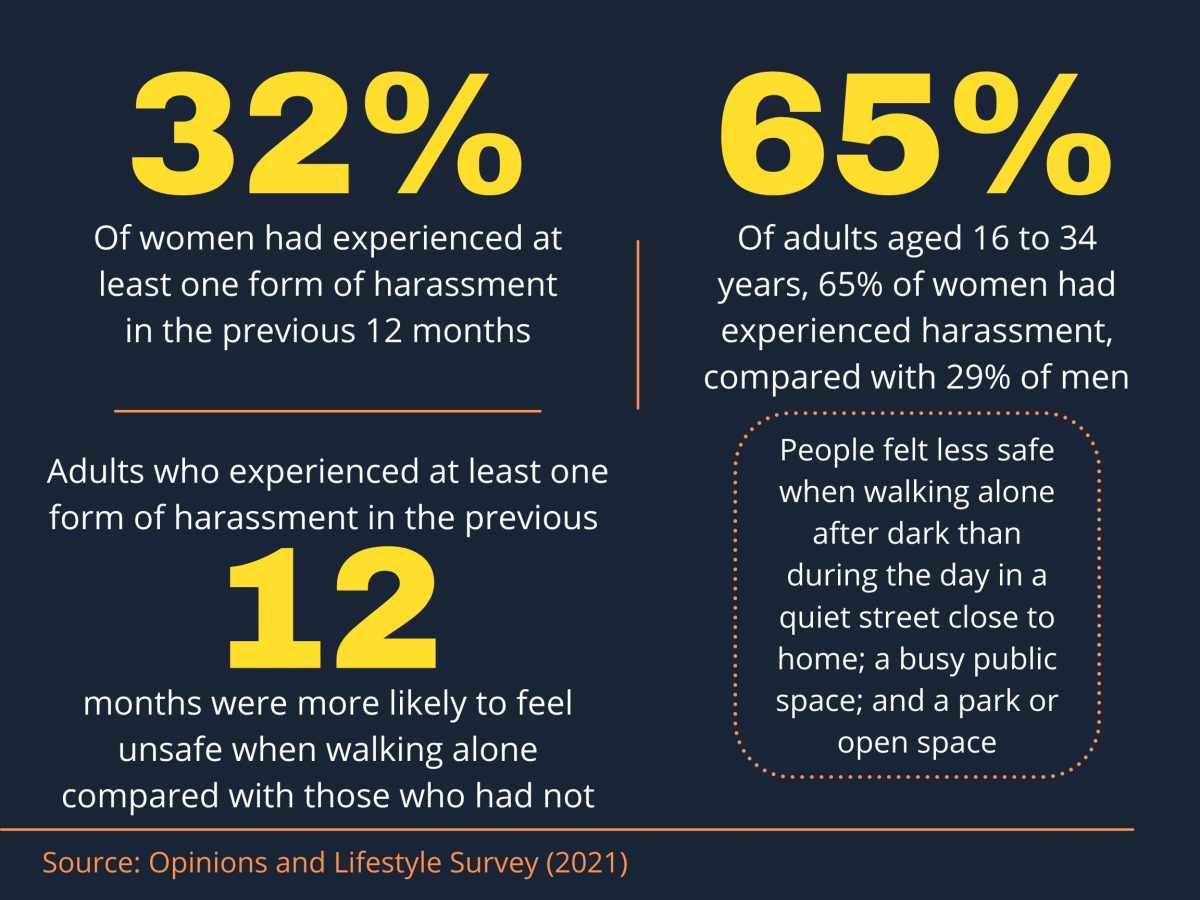
But is the app a way to victim blame and should we not tackle the problem at the source?
Educating boys from a young age to treat women with respect and not as objects is key in making a difference.
More needs to be done by the Government and the criminal justice system.
How can it be that only 1.5 per cent of rape cases result in a prosecution? Surely this figure alone shows that the way violence against women is punished is deeply flawed if men do not see harsher repercussions.
This app is definitely a step in the right direction to tackle this issue, but is it enough? There are underlying issues of misogyny in society that cannot be covered up with new technology.
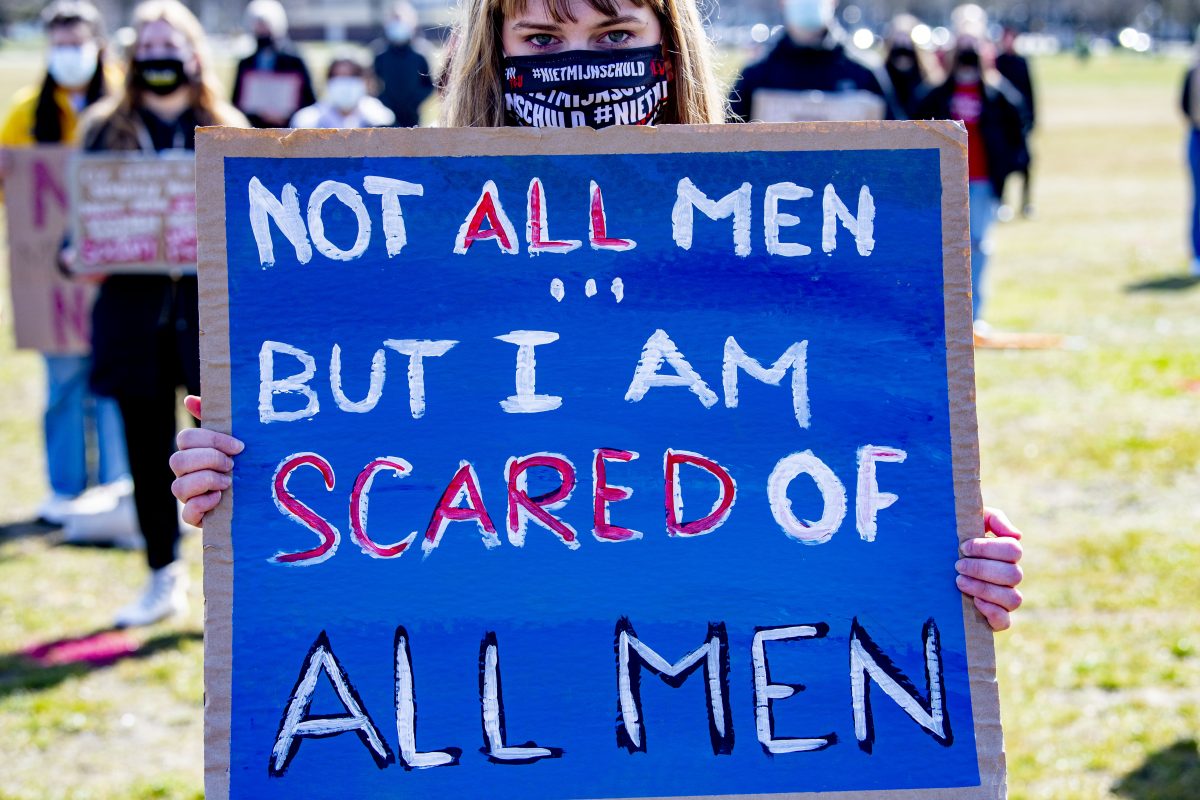
On a personal note, I, a woman, am deeply indignant that I keep seeing these meaningless ‘solutions’ to the problem.
Why should I have to go out of my way, spending money on personal safety items, Ubers, when a man can walk home on his own at 2 AM and feel nowhere near the crippling anxiety I do, that it could be my last walk.
I bought my rape alarm after the first time I was sexually harassed. I also share my Uber journey with close friends. I make a friend walk me home after a night out. I make sure I am not being followed. I do not engage too much with male strangers. I do kickboxing and self-defence to feel safer. I fake phone calls when walking alone, so it is clear I am expected somewhere, and the list goes on and on.
There are also wearable items with alarms and knives hidden in them. Now there is an app I should consider downloading, because all this is still not enough.
At what point did it become normal for this to be expected of women?
This app, if not abused, could make a difference in helping women to feel and actually be safe, but why does the responsibility fall on the potential victim?
Did Sarah Everard’s death not prove how deeply unjust it is that women feel this way? Women are not the ones responsible.
This is such an extensive issue, and the Path Community app only touches on the changes that need to be made.
If you have been affected by anything in this article support is available by visiting The Survivors Trust or Women’s Aid websites.
Related articles:

